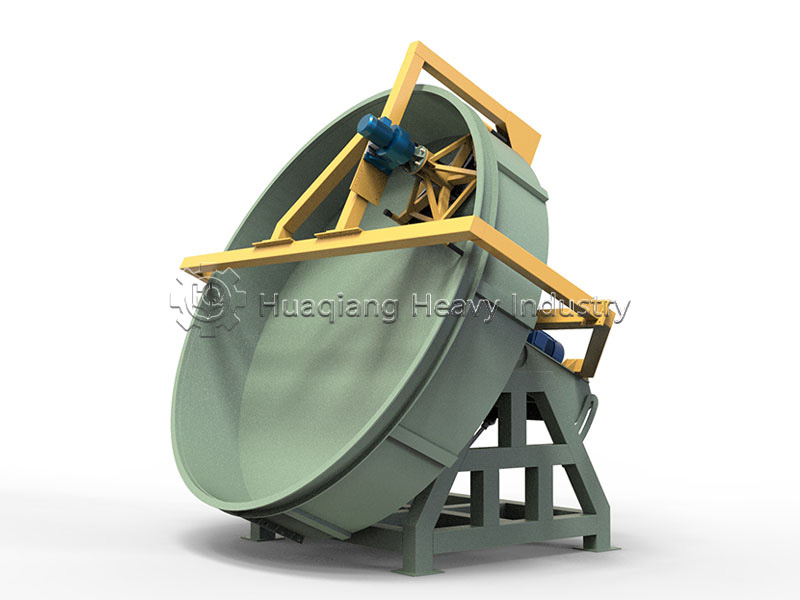In modern industrial production, converting powdered materials into uniform particles is a critical process. The disc granulator, as a classic equipment in this field, has become indispensable in industries such as fertilizer, metallurgy, and building materials due to its efficiency and flexibility.

Working Principle of Disc Granulator
The core component of a disc granulator is an inclined circular shallow pan with raised edges. When powdered materials enter the rotating disc, they begin to tumble under the combined action of gravity, centrifugal force, and friction. With the uniform spraying of binders from liquid spray devices, fine powders gradually aggregate and bond, forming uniform spherical particles similar to rolling snowballs. As the particles grow to the set size, they are thrown out of the disc by centrifugal force, completing the granulation process.
Equipment Configuration and Price Levels
The price range of disc granulators is quite broad, mainly between 15,000 and 150,000 yuan, depending largely on equipment specifications and automation level. Small equipment (1.2-1.5 meters in diameter) is affordable and suitable for small-scale production; medium equipment (1.8-2.5 meters in diameter) offers improved materials and functions for small and medium-sized enterprises; large equipment (over 3 meters in diameter) uses full stainless steel construction and advanced PLC control systems to meet the needs of large-scale industrial production, with pelletizing rates exceeding 90%.
Wide Applications of Granulators
Granulation technology finds applications across almost all industrial sectors. In agriculture, it converts livestock manure and fertilizer raw materials into easy-to-use granular fertilizers; in the pharmaceutical industry, it transforms drug powders into uniform particles suitable for tableting; in food processing, it improves the flowability and taste of milk powder and seasonings; in chemical and building materials fields, it helps process materials like coal powder and cement, enhancing subsequent processing efficiency.
Technical Features of Rotary Granulators
As an important category of granulation equipment, rotary granulators achieve particle formation through friction, impact, or compression generated by rotating components. These devices typically include core components such as drums, rotors, and transmission systems. Their working methods are mainly divided into two types: one forms particles through self-friction of materials in rotating drums combined with binder action; the other extrudes materials through relatively rotating compression wheels to form particles from mold holes. Depending on the characteristics of the materials being processed, machines with different rotation speeds can be selected to ensure optimal granulation results.
With the continuous development of global industrial technology, granulation equipment continues to innovate. Modern granulators not only focus on improving production efficiency and pellet quality but have also made significant progress in energy conservation, environmental protection, and intelligent control, providing strong support for sustainable development across various industries.
In conclusion, modern granulation technology has revolutionized industrial production across multiple sectors. The disc granulator(pan granulator) remains fundamental in NPK fertilizer production process, while rotary drum granulator systems excel in large-scale drum granulation. For specialized applications, the roller press granulator production line handles fertilizer granules compaction efficiently through advanced fertilizer compaction machine technology. The complete NPK fertilizer production line integrates various equipment including rotary screener for quality control. In organic fertilizer production, fermentation composting technology for organic fertilizer utilizes chain compost turning machine and windrow composting machine alongside new type two in one organic fertilizer granulator to streamline the organic fertilizer fermentation process. As fertilizer production machine technology evolves, these integrated systems continue to optimize NPK fertilizer manufacturing process while enhancing sustainability and production efficiency across global industries.